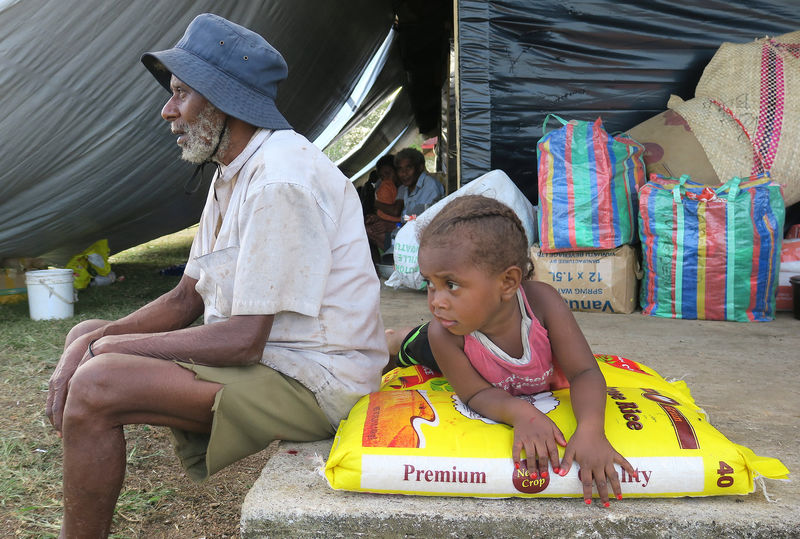SYDNEY (Reuters) - The last residents on Vanuatu's northern island of Ambae will be evacuated on Wednesday, officials said, as a volcano that has been spitting rock and ash into the air for more than a week shows signs of stabilising.
Vanuatu was forced to use a flotilla of small boats, barges and supply ships to evacuate roughly 11,000 people in recent days after Manaro Voui volcano, the South Pacific island nation's largest, threatened to erupt.
"There are just several hundred people left, many of whom are officials assisting with the evacuation. We expect the evacuation to be complete today," said a Vanuatu official, who declined to be named as he is not authorised to talk to the media.
Although confident of evacuating the vast majority of Ambae residents, officials may struggle to convince everyone to leave amid fears of losing vulnerable livestock and crops.
Ambae's population has been moved to the closest islands of Maewo, Pentecost and Espiritu Santo until the threat of an eruption has eased.
Although the volcano remains at a level four, the second highest level in Vanuatu's alert system, aid workers said the amount of rock and ash being emitted had stabilised.
With the evacuation nearly complete, focus has shifted to ensuring those displaced have enough food and water, with shipments from Australia and New Zealand filling an urgent need.
Despite evacuating to safety, aid workers said locals are anxious to return to assess the damage.
"The biggest source of stress and anxiety to many is they have been told to leave and they couldn't take their livestock, which is so important to their subsistence and income," said Georgia Tacey, Vanuatu country director at Save the Children Australia.
Vanuatu is one of the world's poorest nations, where locals are almost entirely reliant on food grown in their garden to survive, aid workers said.
